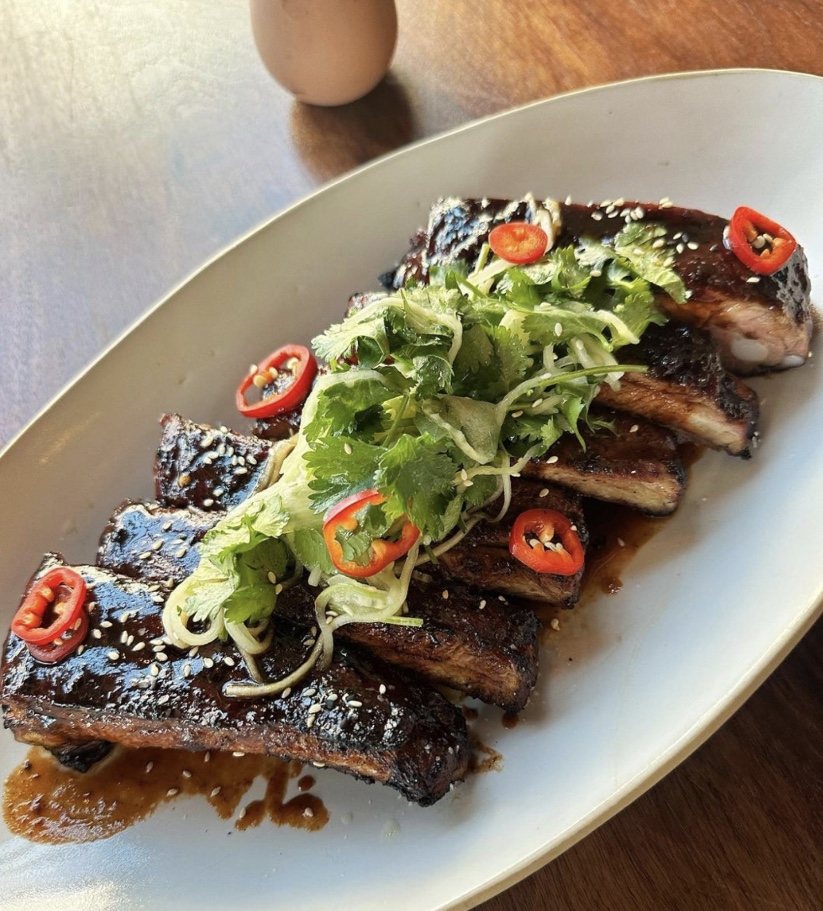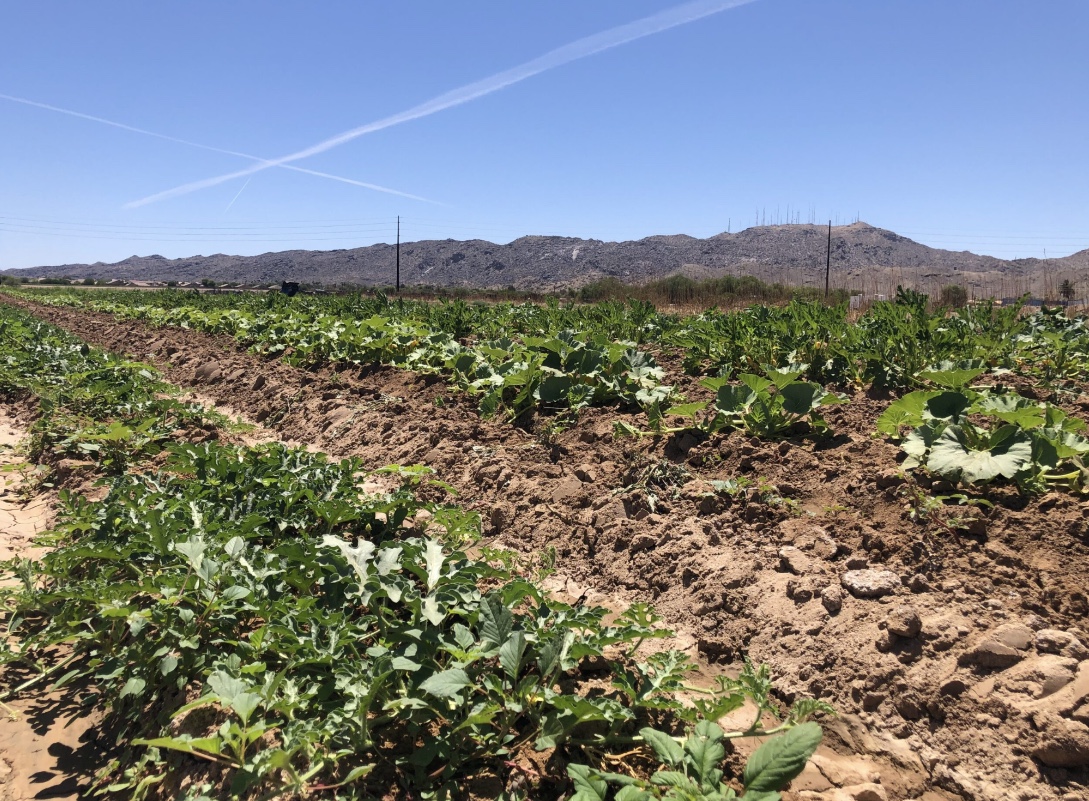By Jordan Gerard
In the United States, the Department of Agriculture estimates that between 30-40% of our food supply goes to waste. The Tempe Restaurant Composting Project – designed by Local First, Recycled City, and the City of Tempe – wants to change that, with a goal of creating a circular food system. By November 2024, they want to convert roughly 300,000 pounds of food waste into 80,000 pounds of compost that will work to grow new food in Arizona.
The program has been offered to locally owned restaurants along Apache Boulevard, a business corridor that has been suppressed for a long time, according to Nick Shivka, Local First Arizona senior manager of sustainability initiatives.
Benefiting from the Valley Metro light rail and the Tempe Streetcar, the Apache Corridor is coming back to life, and now is a critical time to offer support to businesses in the area. Healthy businesses mean healthy and safe neighborhoods, in addition to income for the families who own those businesses. According to Shivka, many of this neighborhood’s restaurant owners have heritages that span the globe. Over 100 different languages are spoken in just one square mile.
“These businesses are so important because they circulate local dollars in the economy, hire local workers who are connected to their places, and it’s a haven for culturally familiar food for those who have relocated here to the U.S.,” he notes.
Cocina Chiwas began participating in the Tempe Restaurant Composting Project in August. Husband and wife team Armando Hernandez and Nadia Holguin opened the restaurant at the beginning of 2023, adding it as another unique concept to their already well-established list of restaurants in the Valley. The restaurant is currently located in Cul-de-Sac, the first car-free community in the U.S.
The Hernandezes are originally from Chihuahua, Mexico, and many of their employees have ties to different regions of the country, as well, General Manager Adrian Galindo said.
“It’s something we’re all very firmly connected to and want to spotlight a little bit more,” he said. “Mexico is this gigantic country with several ecosystems. You get a variety of cuisines across Northern Mexico, Southern Mexico, Central Mexico. They all have their own expressions.”
The menu at Cocina Chiwas is anything but typical. Creative dishes — like oysters in a jamaica and habanero mignonette — are plentiful across the elevated menu. But beyond the food, Galindo said they want to be active in helping the local environment. He adds that Local First was instrumental in helping the restaurant to get set up with the ability to compost, as it can be difficult to know where to start.

“I think it’ll be a fantastic program,” he said. “We really want to help them grow it out and kind of [complete] this supply chain around local farmers [and] local restaurants.”
Training on what can and cannot be composted will help to educate employees and help them shift their habits when it comes to discarding food waste. Galindo isn’t exactly sure how much waste the restaurant produces currently, but he’s happy to have the program in place for a planned expansion to include weekday lunches and weekend brunches.
Shivka said several goals drove the Tempe Restaurant Composting Project to fruition. His goal is to help restaurants become more sustainable, even though sustainability is often talked about as being “too expensive.” Because food production and food waste combine to create approximately 32% of global greenhouse gas emissions, the ability to reduce food waste becomes a basic need when referring to sustainability. Composting is a good way to start.
To be clear, food waste isn’t necessarily a restaurant’s fault. It’s a problem with a lot of different causes, including legislation and its effect on agricultural practices; human behaviors; and food label education and awareness. It’s not top-of-mind in the U.S. because we don’t have strong policies that encourage businesses to compost, Shivka said. According to ReFED, a national nonprofit that is dedicated to ending food loss and waste, Arizona wasted about 2.37 million tons of food in 2021.
“It’s also an opportunity for [the restaurant owners] to kind of give our local food economy a kickstart into transforming into a sustainable local food economy,” Shivka said.
To launch the program, Shivka met with owners or managers of local restaurants along the Apache Corridor to talk to them about their business goals. He performed an audit on the restaurants to identify points of waste generation and provided an assessment of how each restaurant could incorporate composting without making it harder on operations.
“We’re actually hoping to make waste (disposal) easier for the restaurant. A lot of businesses haul 200-pound bags of garbage,” he said. “But with this program, they are getting this compost barrel that would be right outside their back door. They don’t have to haul it that far.”
After a restaurant signs up for composting collection, Local First helps them collect data on the weight of their food waste to see how much they’ve helped divert. It’s a tangible way to see how much food is going into the compost bin. It changes human behavior to see things not as waste, but as an opportunity to do good for the environment, Shivka said.
Local First also assists restaurant managers and owners in customizing a training program for their staff and provides them with the necessary autonomy to implement it, recognizing that they know their employees best.
While restaurants can’t control how much food customers want, they can control how much they order on the front end and how they prepare their food. Streamlining menus to avoid specialty ingredients that are used only in one or two menu items is another effective way to reduce food waste. Utilizing seasonal foods and produce that are grown locally also serves to reduce greenhouse gas emissions from products that are trucked into the state from outside Arizona.
Recycled City — a Valley-based composter that offers food waste diversion in Phoenix and the surrounding Metro area — conducts the compost pick up and, in concert with the City of Tempe, will provide each restaurant with free pick up for the first six months. It’s just $20 a month thereafter for as many pick ups as needed. Trucks go out seven days a week to collect and empty compost bins. The compost comes back to the farm, where a team of 20 employees rotates the food scraps and compostable items. The resulting mixture breaks down into compost over a six-month period.
Not only is this program good for the environment, it’s also good for the community itself.
“When we find ourselves at the center of that circular economy, it’s because of us that this place is not only able to exist, but they kind of persist,” Shivka said. “[They] develop that hometown pride.”
Composting is a skill that might take some time to learn, but the end goal is rewarding. For backyard composters, the rules of what can be composted are a little more stringent because it can be difficult to keep the right moisture level and – for the average composter – it can be more difficult to rotate the mixture, Jessica Spriggs, administration for Recycled City said. Food scraps, pizza boxes, paper towels (that haven’t been used with chemicals), and other compostable items are accepted. Produce grown in compost is more nutrient dense and avoids the need for chemicals or pesticides.

“Our soil is really being depleted,” Springs notes. “If we just grow and take that food and those scraps and send [them] to the landfill, we’re not putting nutrients back into the soil.”
Recycled City collects compost bins from businesses and homes around Tempe and the Phoenix metro area. The company is celebrating 10 years of business this year and has over 150 commercial businesses on its pickup list. Familiar names include Four Peaks Brewing Co., Cartel Roasting Co., and First Draft Book Bar, among others. Spriggs said they’re happy to offer services wherever people are located within the service area and happy to help train businesses on what is and is not compostable.





